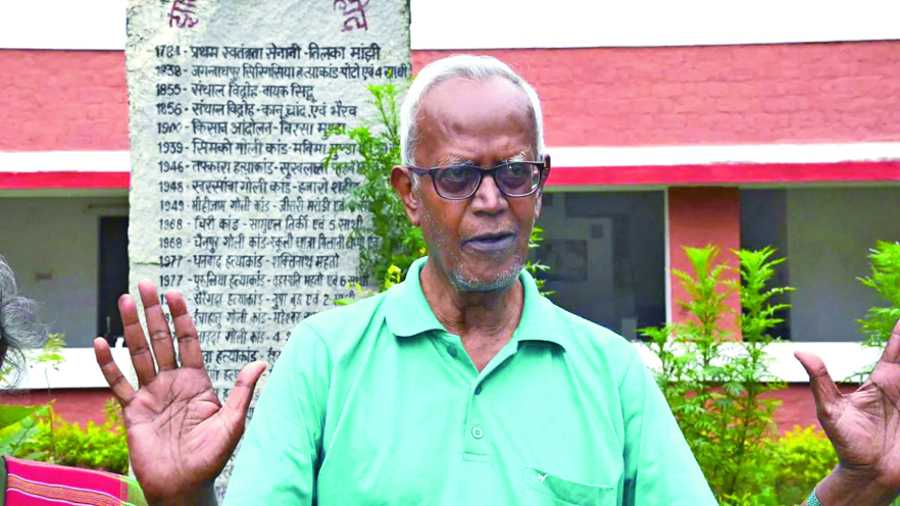Book: I am not a Silent Spectator: Why Truth has become so Bitter, Dissent so Intolerable, Justice so out of Reach
Author: Stan Swamy
Publisher: Indian Social Institute
Ever since the tragic death of the human rights activist, Father Stan Swamy, much has been written about him, including a few books. This is not surprising, given his contributions to human rights, especially the rights of indigenous people. However, what distinguishes this book is that it is a first-person account even though it is not an autobiography. Divided into 16 short chapters, including a Prologue and an Epilogue, it takes us on a journey where we are not just introduced to Stan’s personality and work but also get glimpses of the time period it covered. This makes the book important to those interested in knowing about the plight of adivasis in independent India and their struggles to make the country a better place to live in.
Stan asks a question in the Prologue, perhaps the most important question of our time: “Why truth has become so bitter, dissent so intolerable, justice so out of reach?” Instead of waiting for someone else to answer it, he informs us this is so “because truth has become very bitter to those in power and position, dissent, so unpalatable to the ruling elite, justice, so out of reach to the powerless, marginalised, deprived people.” He goes on to declare, “Yet, truth must be spoken, right to dissent must be upheld, and justice must reach the doorsteps of the poor. I am not a silent spectator.” This paragraph makes it clear who Stan was and how he wanted to be remembered.
The book establishes that when truth needed to be spoken and injustice fought, Stan was not afraid to do so, not only against the mighty State but also his own brethren — Christian priests. For example, during the mid-1970s, he along with others campaigned for the implementation of the government’s ‘land to the tiller’ policy for villagers living on the outskirts of Bangalore. Owing to his campaign, a few local parish Catholic priests who were on good terms with the landlords accused him and the organization of plotting to divide the local church. “The Diocesan authorities asked for my removal from Bangalore. Fortunately, the Jesuit superiors stood in solidarity with me and ISI [Indian Social Institute] and declined to oblige the demand of the local church authorities,” writes Stan. Originally from Tamil Nadu, Stan was based in Bangalore for 15 years before arriving in Jharkhand to work for the rest of his life.
In chapter three, the author painstakingly documents the plight of tribals and how the laws that are meant to safeguard the rights of adivasis have become mere showpieces. “True, some laws have been enacted apparently in favour of Adivasis, however, simultaneously, enough loop-holes are provided so that these laws do not take effect,” writes Stan, adding, “The injustice done to the tribal people of India is a shameful chapter in our country’s history.”
The book also contains the letter, which was to be released as and when he was arrested. In addition, it also contains letters and poems written from jail. These letters and poems show that even though he was imprisoned and not keeping well, he was more concerned about his fellow inmates and accused than his own life. In one of the letters, he writes: “All of you have expressed hope that I will be released soon. Much as it may be desirable in itself, I’m beginning to question if it is proper. I’ve met all my co-accused lodged in this prison. They are all such precious human beings who have given the most and best of themselves for the cause of the deprived. They have been in jail for more than two years but have not been able to get bail. I’m the last (16th) to be arrested in the same case. I think that my release in the near future will be justifiable only if it somehow provides an opening for others to get bail.”










